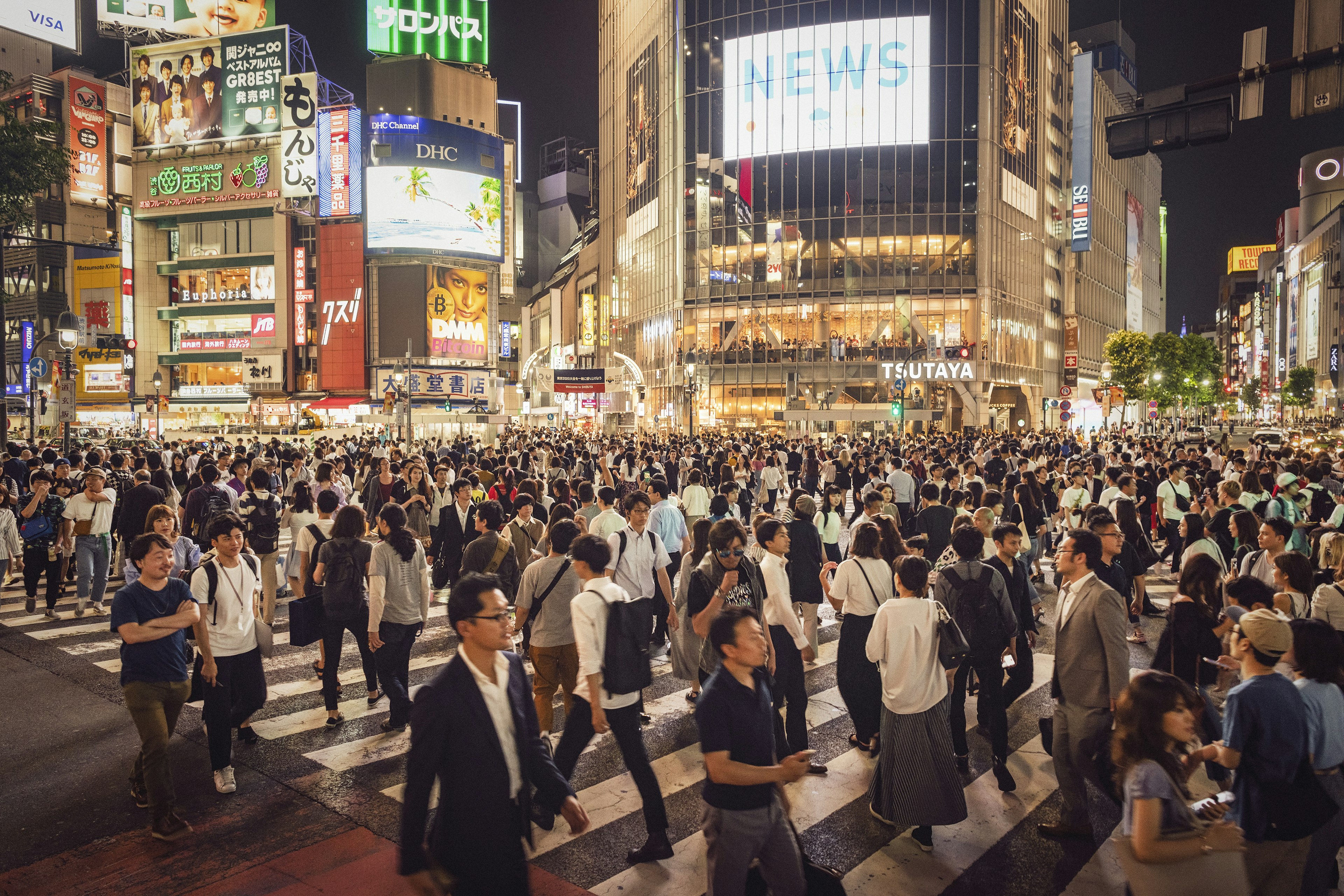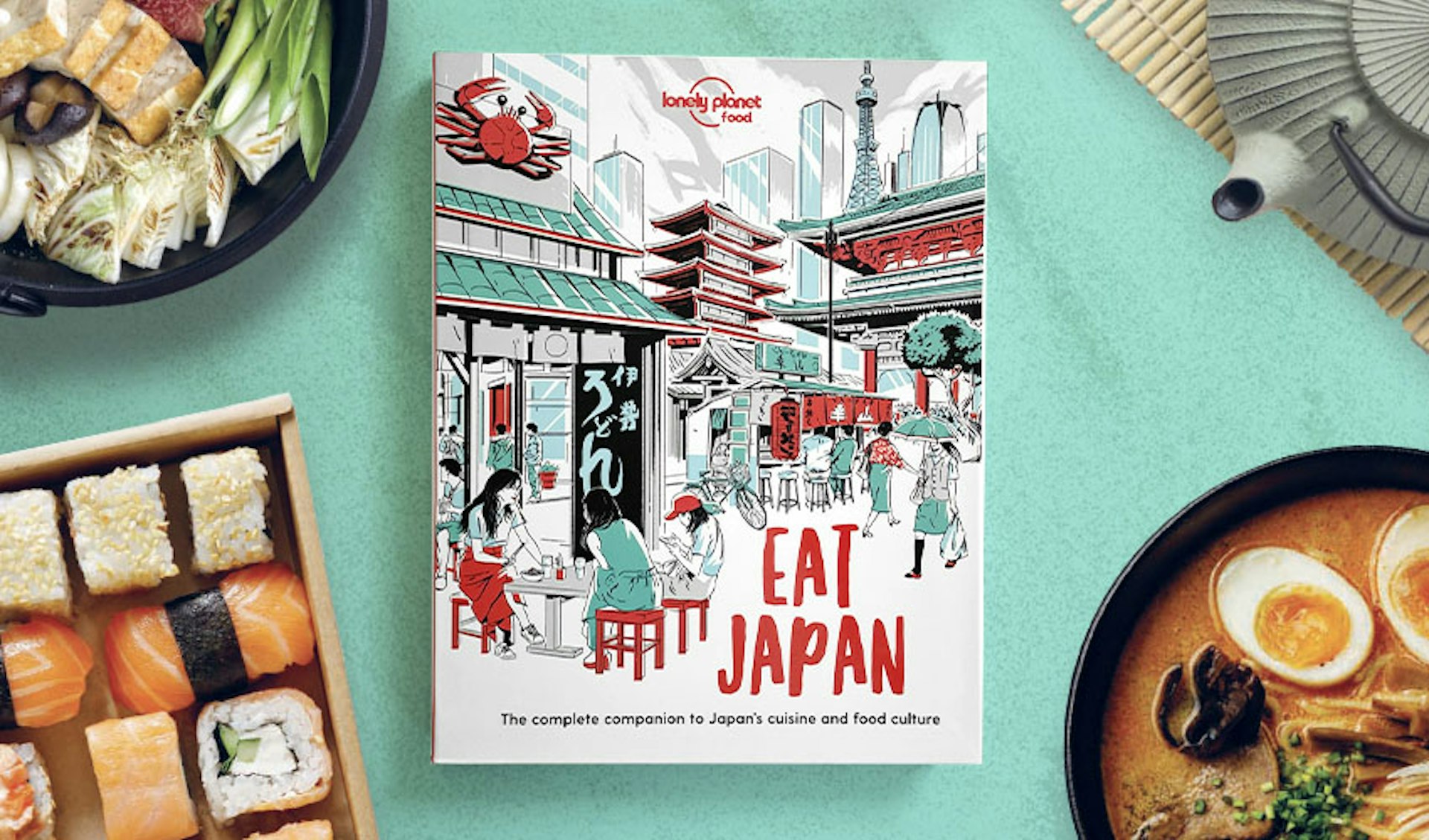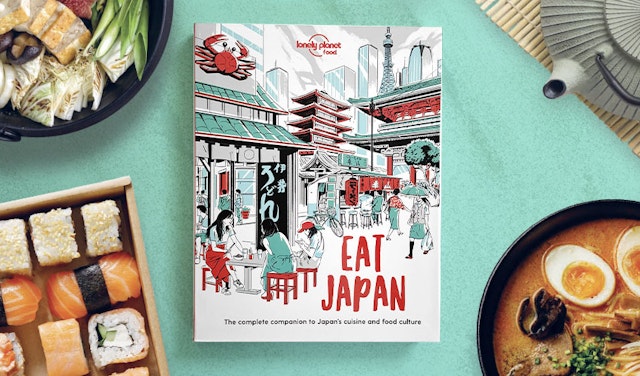Tokyo’s reputation for being one of the world’s safest and most exciting travel destinations precedes it. The Japanese capital consistently tops global lists of safe cities, and Tokyo celebrated eight consecutive years of inbound tourism growth in 2019. But there is a darker, or at least slightly more uncomfortable, side to the Japanese capital.
Like many wide-eyed gaijin (foreigners), when I hopped off the plane four years ago, I was rather naive about what to expect from life in Tokyo, and not fully prepared for the low-level discrimination, the complex morass of etiquette and social mores, and the suspect nightlife haunts that visitors become wiser to over time. Here are some of the things I wish I had known before traveling to Tokyo.
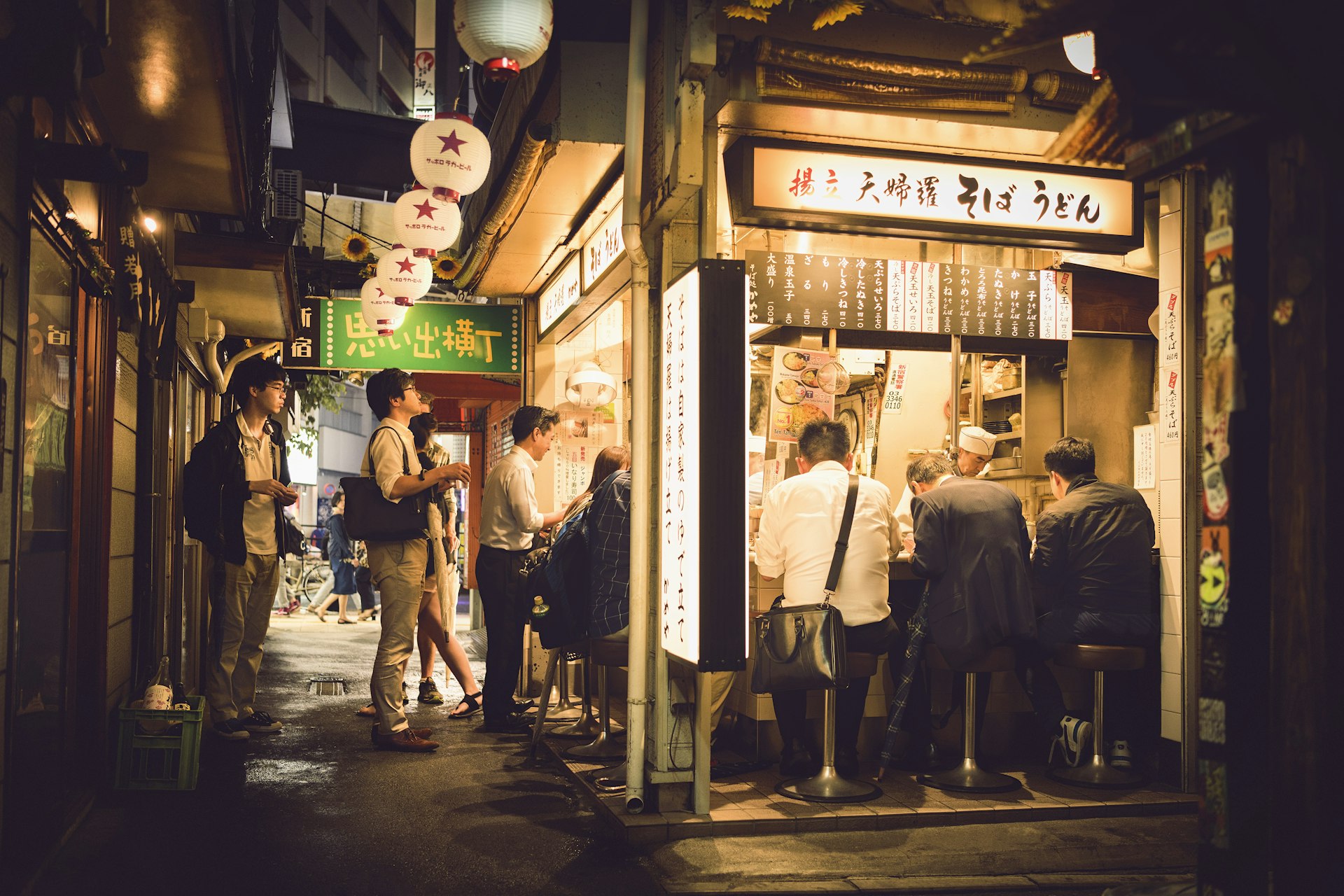
Multiculturalism and Diversity
Japan is an extremely homogeneous society. More than 98% of the population is Japanese, and this creates some stumbling blocks for visitors from other cultures. Spearheaded by former Prime Minister Shinzo Abe, official government policy in Japan since 2012 has been to promote inclusivity and diversity, and efforts are being made to break the glass ceiling for career advancement for non-Japanese, to increase the number of foreign residents, and to grow the inbound tourism industry. It’s fair to say progress is being made, but it's equally fair to say there’s a way to go.
For travelers to Tokyo, discrimination is perhaps most apparent at nightlife establishments, where door staff may refuse entry based on the color of a person’s skin or some other immutable characteristic that identifies someone as not being Japanese. It's not unheard of for visitors to be made to feel uncomfortable in bars by local patrons, or told the place is ippai ('full') when tumbleweed is practically tumbling between the tables.
When going out in Tokyo, a good indicator of whether a place wants your custom is the use of English characters on the menu or outdoor signage. In touristy neighborhoods such as Golden Gai–a popular collection of ramshackle bars in Shinjuku–it’s a little more obvious: some bars have signs reading, 'Foreigners Welcome'; others have signs stating, 'Regulars Only'.
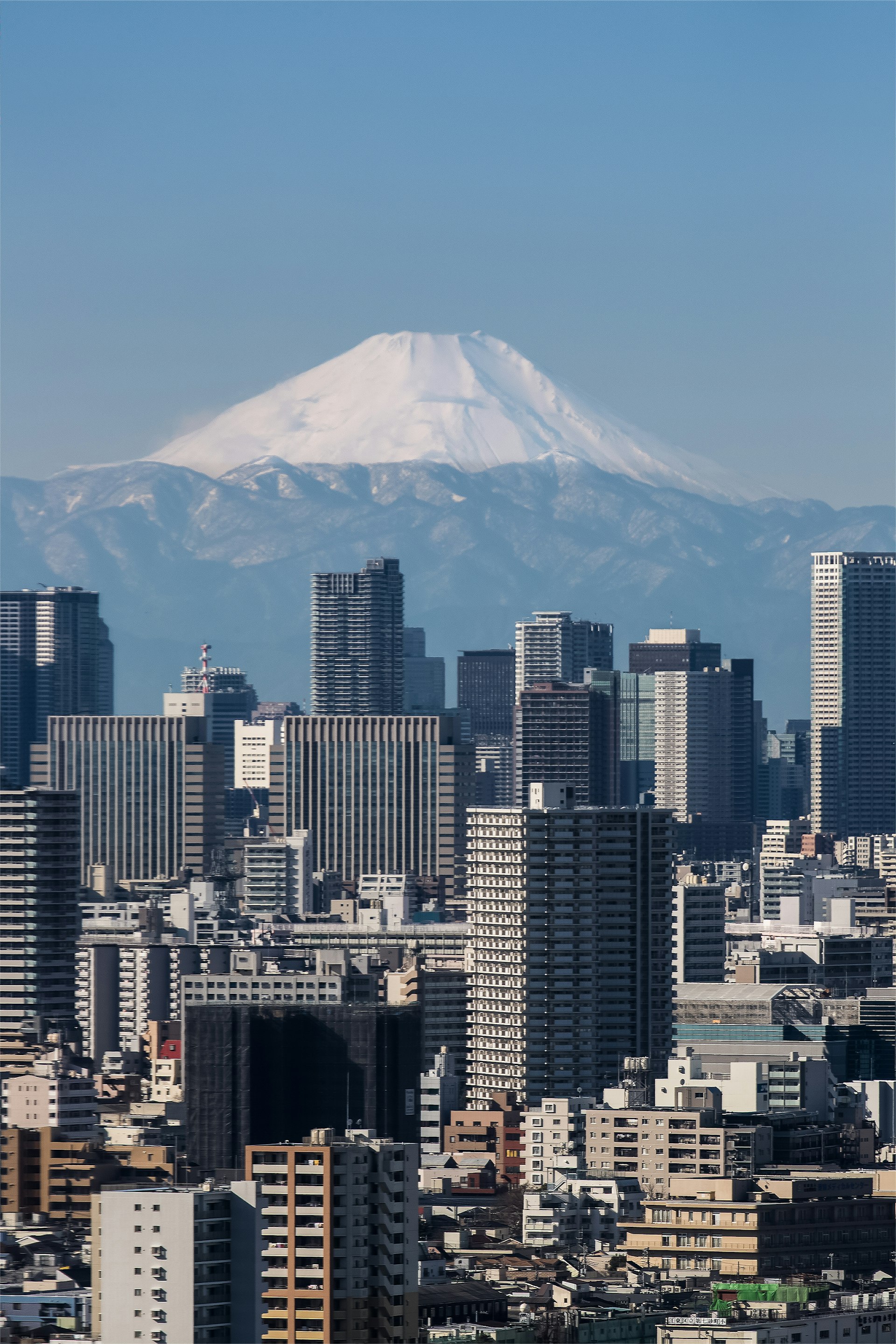
Natural Disasters
It shouldn't come as a great surprise to hear that Tokyo is prone to some fairly wild meteorological and tectonic phenomena. Roiling thunderstorms, super typhoons, earthquakes, volcanic eruptions, and tsunamis strike Japan annually, and extreme weather disasters over the last few years suggest that global warming is also having an effect. What may surprise visitors is how Japanese citizens take these regular natural disasters in their stride.
Tokyo is extremely well-prepared for seismic events. Earthquake-safe building regulations were written into the Building Standards Act of 1981, and many structures use cutting-edge innovation to reduce the dangers of earthquakes: for example, the Tokyo Skytree contains a central pillar attached to seismic dampers that absorb tectonic energy. Each area of the city has dedicated earthquake evacuation spots, and most modern smartphones will receive audible warnings when large tremors are detected. Specific disaster notification apps are widely available.
The major risks from the autumn typhoon season (May to October) are flooding and power outs. Government typhoon warnings are usually broadcast well in advance and are well publicized, causing local people to clear the shelves of disaster supplies in supermarkets and convenience stores. It’s definitely worth stocking up a few non-perishables if you catch wind (no pun intended) of an incoming typhoon.
You can also buy disaster emergency kits from chain stores like Yodobashi Camera and Don Quijote. It’s worth noting that the tap water in Japan is generally potable during disasters, unless the mains have been damaged or news reports state otherwise, but it doesn't hurt to buy some bottled water as a precaution.
. Bowing is even better because you keep distance..jpg?auto=format&q=75)
Etiquette and Social Mores
Japan is famous for its distinctive and rather complicated rules for social etiquette. Many social mores are rooted in centuries-old traditions that still endure, despite the Japanese love of technology and modernity. Cleanliness is taken very seriously, and people shower before getting into the bathtub or ofuro (hot tub), including in public bathhouses–you'll find a bucket or a hand-held shower and a stool provided for the purpose. Taking off your shoes before entering a home is also good manners.
Younger people are expected to show deference to their elders in Japanese society, and social status is also very important. This is best demonstrated by the tradition of bowing, which almost everyone does as the standard greeting in Japan. Spend a while here and you'll notice that not all bows are the same; people who are younger, or of lower social status, will bow for longer, and bow lower, than older or high status people. Sometimes, there will not be a single bow, but a series of tit-for-tat bows of decreasing intensity, until everyone feels politeness has been satisfied.
For foreign visitors, navigating these finer details of Japanese greeting etiquette can be a minefield, even without the language barrier (which is still something you'll often encounter). When meeting people, offering a handshake may make locals feel uncomfortable if they’re not accustomed to shaking hands. Conversely, some Japanese will greet foreigners with both a bow and the offer of a handshake, leading to a risk of bumped heads! As a general rule, try for a bow even if it makes you feel awkward (I often opt for a smile, a little dip of the head and a well-rehearsed konnichi wa).
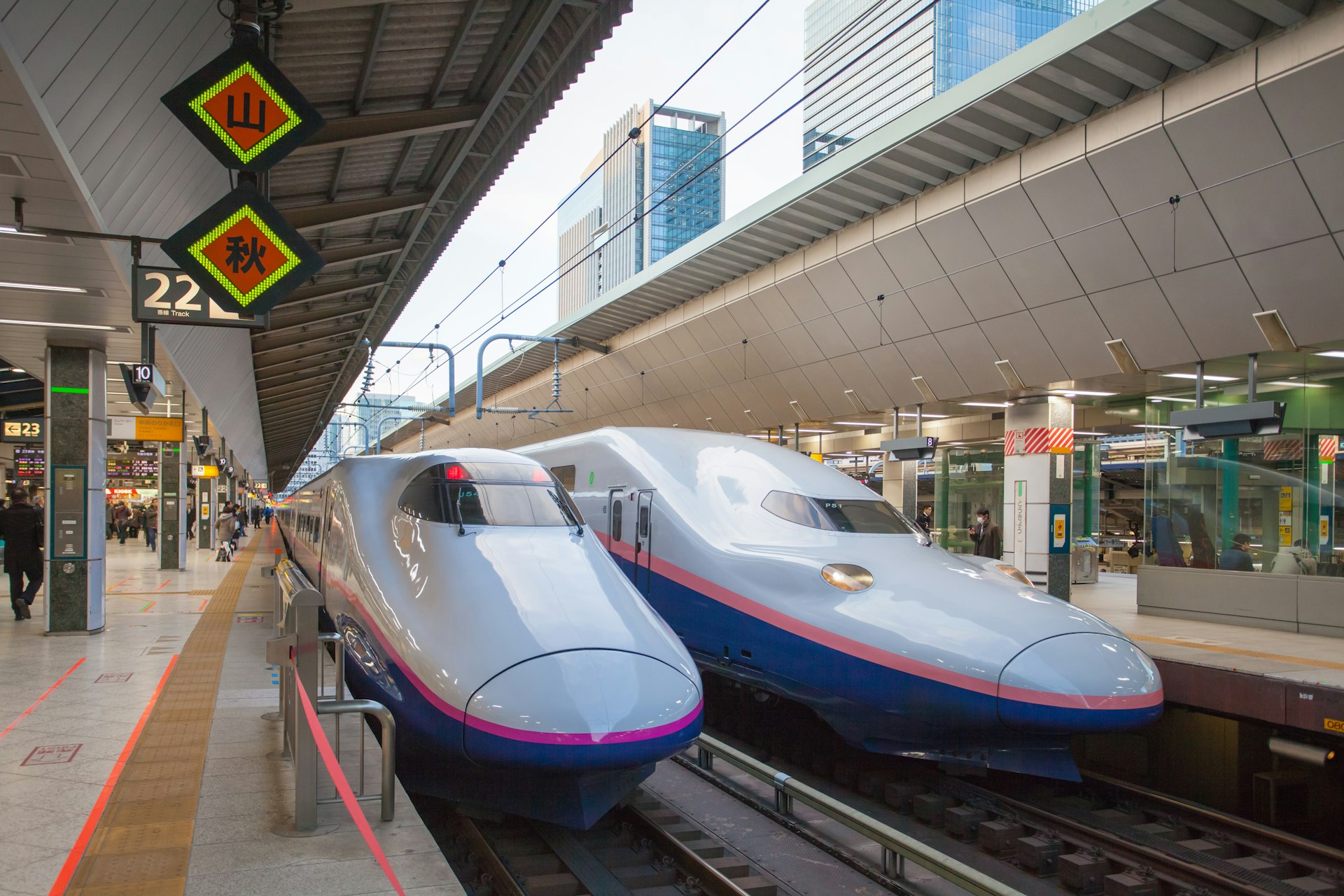
Another thing to look out for: when Japanese people tell you something 'might be difficult', it usually means 'no chance'. For example, if you ask the waiter in a restaurant if you can book a table, and they give a sharp intake of breath and reply 'it might be difficult', this means you’re going somewhere else for dinner. This indirectness is a communicative holdover from the samurai era when feudal lords formalized the habit of separating tatemae (their stated intention) from honne (what they actually meant) in order to maintain peaceful relations.
If you spend time on public transport, you’ll notice that trains are almost eerily silent in relation to how crowded they are. Chatter on public transport is frowned upon, so, it’s best to do as Tokyoites do and avoid talking, eating and creating general disturbances on trains and buses. Using side streets as urinals and smoking in undesignated areas are other behaviors that may get foreigners into trouble. If you're caught short, most convenience stores–which are found on nearly every street corner–have a public restroom. If you're unsure if smoking is permitted, don't light up. You'll often find a dingy, smoke-choked room set aside for smokers in the corner of shopping malls.

The Sex Trade
Tokyo’s sex and solicitation industry also baffles outsiders, but it has a long history in Japanese culture and is highly visible. The euphemistic mizu shobai, or 'water trade', is a vast continuum spanning everything from relatively innocent maid cafes (staffed by women in pantomime-like maid outfits) to 'soaplands' (bathhouse-brothels) and burusera shops which feed dubious schoolgirl fantasies.
If hecklers are luring you into a run-down building with promises of 'ladies', 'massages' and the like, that’s probably what you’ll find inside. It’s worth noting these bars are notorious for drink spiking, credit card thefts, and bills that look more like a phone number than a price tag. It’s also pretty widely accepted that the yakuza–Japan’s largest organized crime syndicate–have their fingers in the mizu shobai pie, and these are people you don’t want to mess with.
Some mizu shobai establishments are less overt. One night, my girlfriend and I accidentally stumbled into a 'girls bar' staffed by elegantly clad women who were attentively waiting on their primarily male customers hand on foot. We raised a few eyebrows on entry, had a couple of beers while patrons wailed on the karaoke machine, and had to pay a whopping US$200 for the pleasure.
Women travelers can find that this creates a bit of a climate of harassment in some neighborhoods. Unwanted approaches from drunk men can be a problem in nightspots and groping is not unheard of in crowds and on public transport. Using female-only carriages on trains is a sensible step.
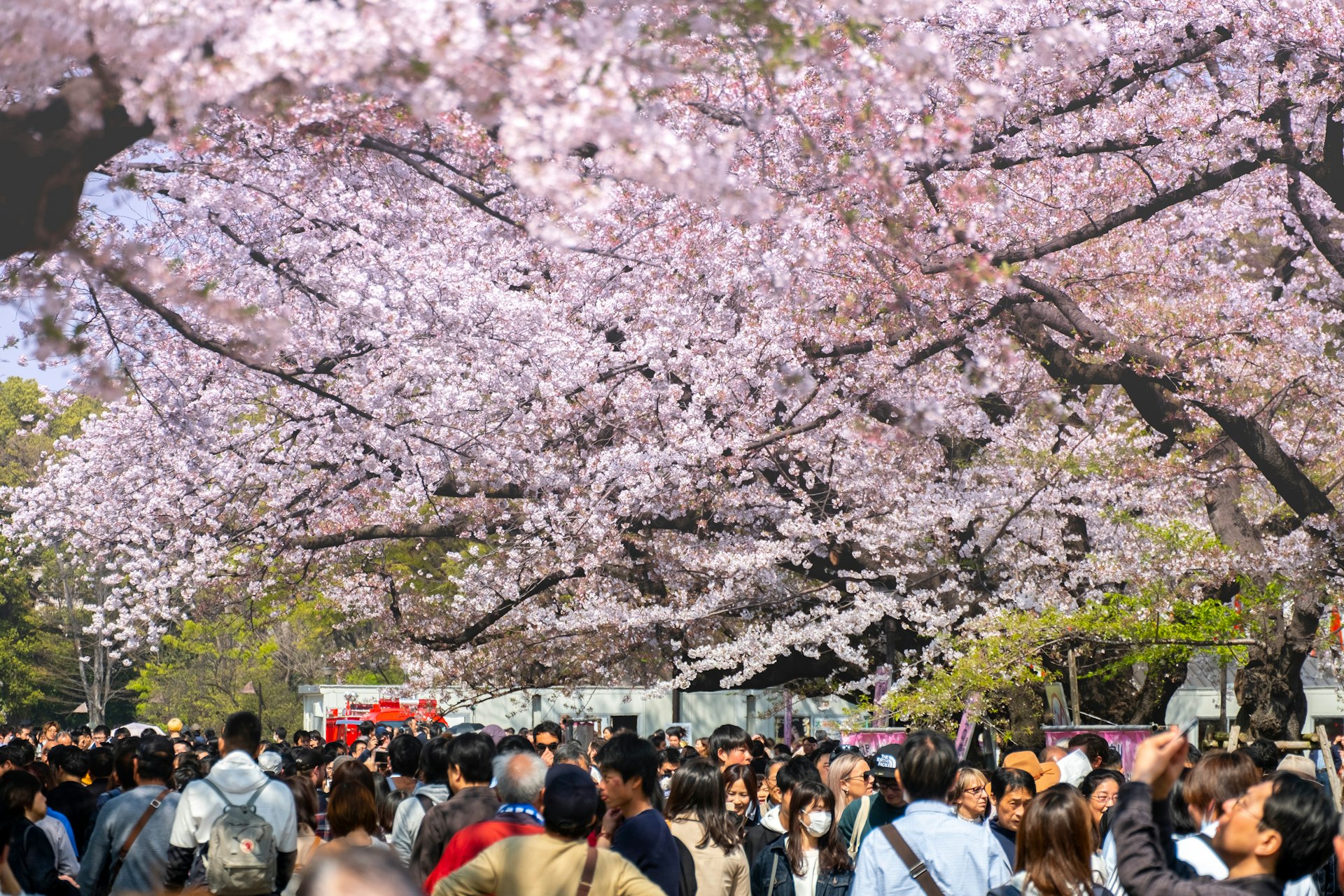
Legal Matters
There are a few Japanese laws that all travelers should be aware of. Firstly, drinking on the street and in parks is legal, and something locals take full advantage of, particularly in spring during the cherry blossom season. A few parks have restrictions, however, so check first before popping the cork. The use of marijuana and most other drugs is illegal and carries significant penalties, even for possession. Considering the high chance of a jail term if you're caught, it's not worth the risk. One caveat to this is CBD, the 'non-psychoactive' chemical in cannabis, which is going through a bit of a craze in Tokyo.
Japan’s zero-tolerance policy towards drugs also extends to many everyday pharmaceuticals that are available over the counter, or on prescription in the West. Necessities like insulin and prescription pills can potentially be seized at customs, so be sure to check the official import regulations if you’re on medication and carry the necessary documentation. If you need to carry more than a one-month supply of meds, you'll need to apply for a permit known as a yakkan shoumei before you travel. See the website of the Ministry of Health, Labor and Welfare for more information.
Gambling is also illegal in Japan, though you’ll likely encounter pachinko, a frantic slot game played with ball bearings, incorporating a mix of digital and mechanical features. Pachinko exploits a legal loophole whereby balls can’t be exchanged for cash in-store, but can be swapped for prize tokens, which are then exchanged for cash elsewhere–so basically, it's gambling via the back door.
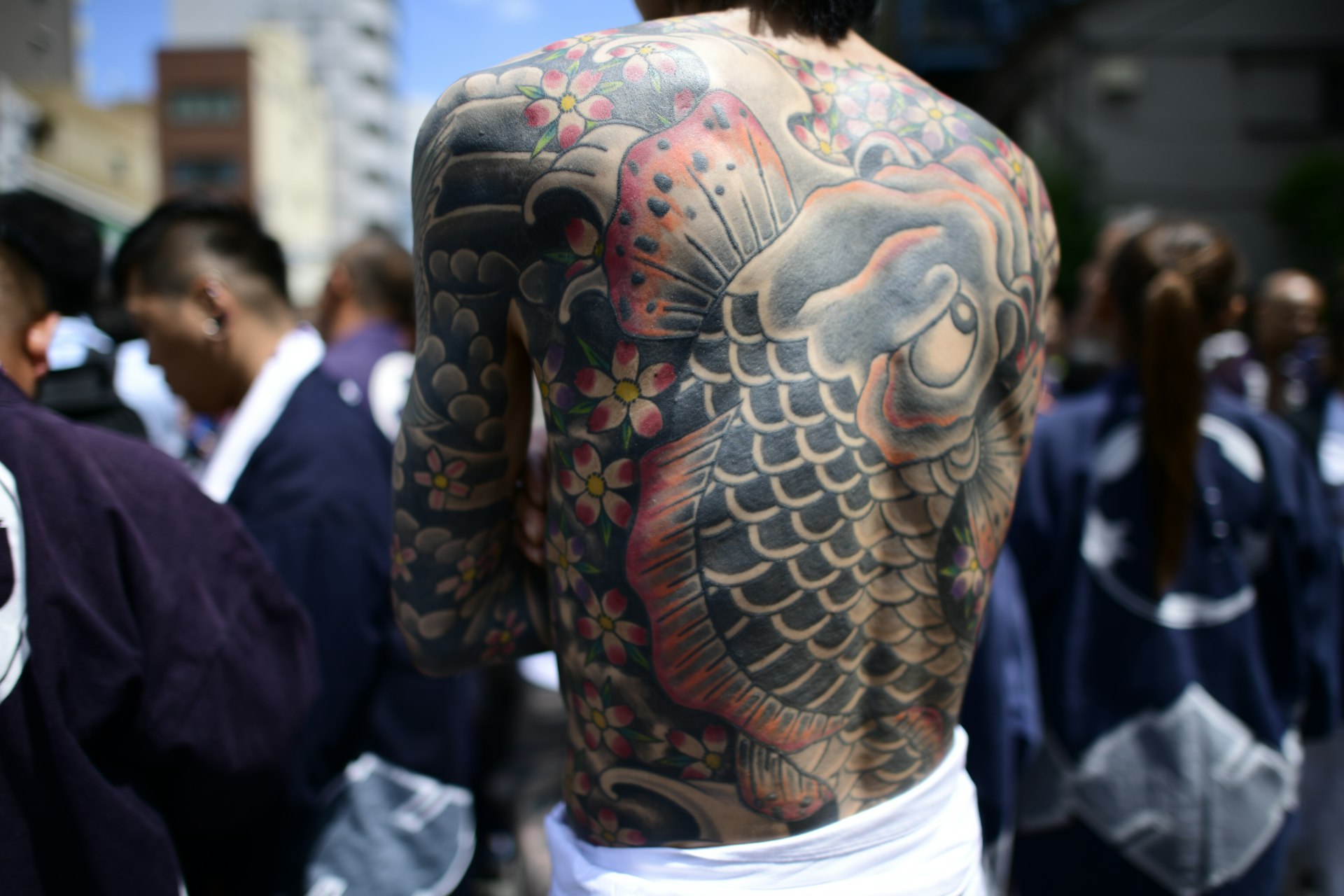
If, for whatever reason, you find yourself on the wrong side of the police–who are usually friendly, even apologetic–be sure to cooperate. Japan’s justice system is widely criticized by international observers, thanks in part to its astonishing 99% conviction rate, which is largely based on confessions–something the police have extraordinary powers to extract from detainees.
Tattooing is not prohibited in Japan, but tattoos are strongly associated with the yakuza and crime in Japanese society. Until 2020, tattooing was legally classified as a medical procedure in Japan, effectively criminalizing tattoo artists. While attitudes are slowly changing, people with tattoos may find themselves barred from bath-houses, gyms, swimming pools and even beaches. If you have tatts, keep them covered.
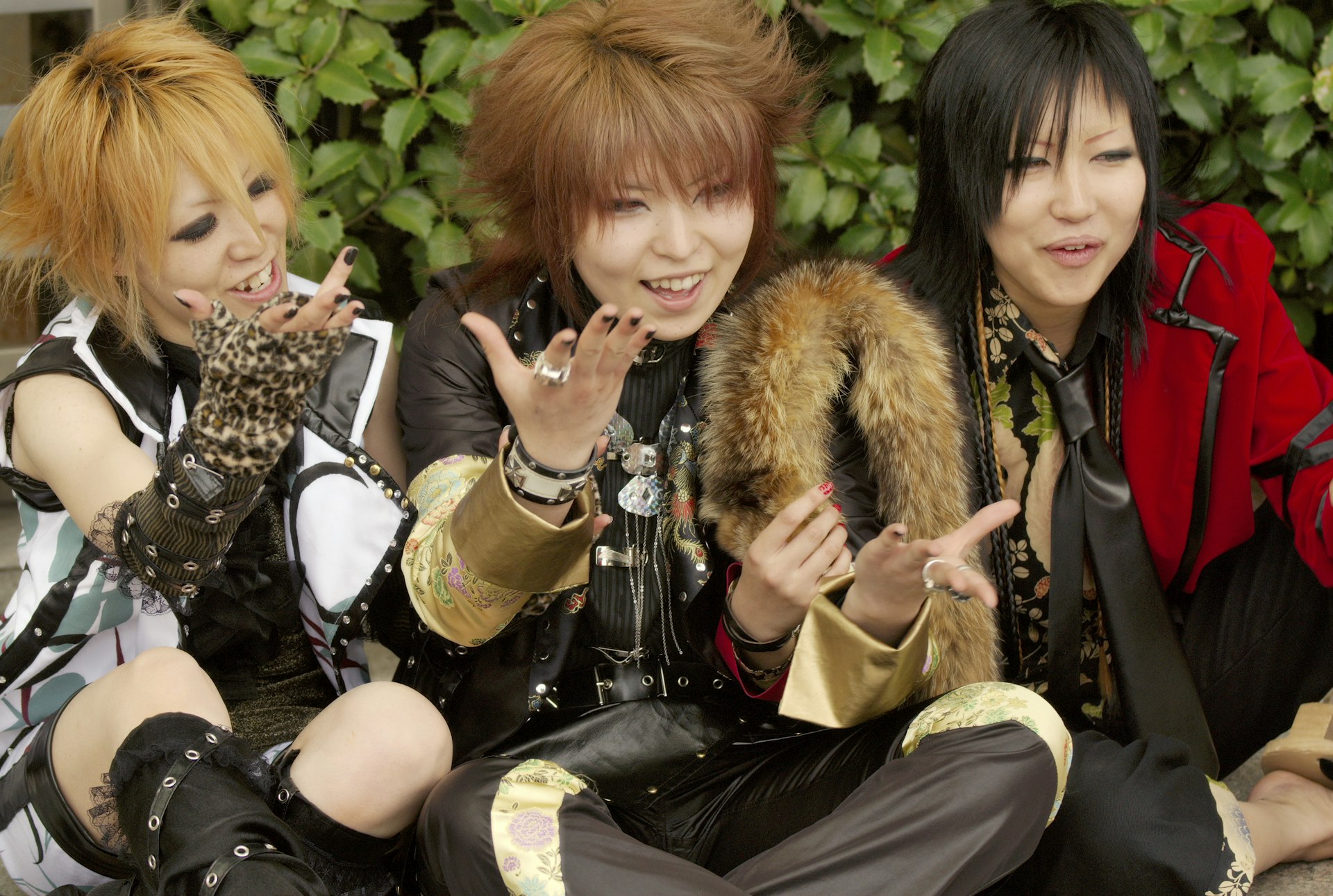
What to Wear on the Street?
Fashion-wise, it’s hard to look out of place on the trendy streets of Tokyo. In Shibuya, Harajuku, Shimo-Kitazawa and other hip hoods, you’ll see people sporting an almost theatrical array of wild and outlandish garb–especially when the sun comes out. Japanese fashion is fun-filled and frenetic and almost anything goes, from smart suits to graffiti-pattern frock coats.
This finds its logical conclusion in cosplay–the hobby of dressing up and posing publicly in everything from gangster outfits to manga superhero costumes. It's all part of a subculture known as otaku–an obsessive devotion to computer games, anime, manga comics and other aspects of pop culture. If you feel like diving in, head to fancy dress-friendly neighborhoods such as Harajuku and Akihabara.
There is one caveat to the 'anything goes' philosophy: you’ll probably notice that Japan’s attitude towards exposed skin is a little different from that back home. In the West, people will happily strip clothes off at the slightest ray of sunshine creeping through the clouds, but in Tokyo, baring too much flesh is frowned on, and may draw condemnation.
Showing off a lot of leg is commonplace, but revealing the cleavage and shoulders is more taboo. None of this is policed in any meaningful way, but if you go further than locals are comfortable with, people may take offense, particularly those from older generations. It’s best to be mindful of this if you’re meeting someone in a formal capacity or visiting a sacred site like a temple or shrine.
You may also like:
14 top things to do in Tokyo
Top neighborhoods to explore in Tokyo
Getting around in Tokyo

